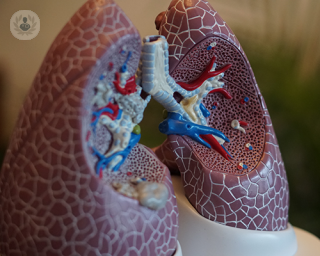Radiotherapy side effects
Dr Omar Din - Clinical oncology
Created on: 07-06-2016
Updated on: 10-23-2023
Edited by: Conor Lynch
What are the main radiotherapy side effects in both children and adults?
Radiotherapy side effects greatly vary depending on the overall administered dose and on the individual’s tolerance.

The most common side effects include:
- Fatigue (asthenia) : it can occur during the treatment, although it can be associated with other disease-related factors or with other treatments.
- Skin reactions: regardless of the treated area, your skin will always be the first affected organ. Redness and erythemas will appear two or three weeks after the beginning of the radiotherapy sessions.
- Malnutrition and decreased appetite.
Less commonly, side effects may include:
- bone growth disorders
- cognitive disorders (most common when the brain is irradiated)
- fertility problems
- higher risk of other tumours
Even though the radiation is usually limited to a certain area, they may affect neighbouring healthy tissues. Tissue lesions caused by radiation can cause several side effects, depending on the irradiated area:
Head and neck
- Hair loss - reversible or non-reversible alopecia;
Mouth
- Mucositis and mouth ulcers
- Candidiasis (fungal infection)
- Xerostomia (dry mouth)
- Dysgeusia (distortion of the sense of taste)
Chest
- Dysphagia (difficulty swallowing, due to the oesophagus mucosa being affected by the radiation)
- Dyspnoea (dry cough and shortness of breath)
Abdominal area
- Nausea and vomiting, especially when the stomach area is irradiated
- diarrhoea (one of the most commonly seen side effects)
- Urinary disorders: dysuria and increased urination frequency
How are the side effects of radiotherapy treated?
Most side effects disappear with time. Furthermore, the symptoms of some of these side effects can be relieved, and you may want to seek advice from your medical oncologist.








